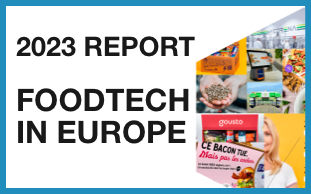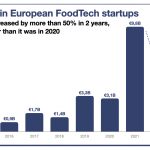The amounts invested in the FoodTech ecosystem have never been so significant. The light put on its startups, and their innovation has never been so bright. Is there any downside to this? Yes, there are, and they are pretty numerous, and they go beyond skyrocketing valuations or shady ventures raising millions.
One of the most notable drawbacks of all this attention is the growing polarisation. As food is very social, we are used to hearing about people hating the very idea of FoodTech (and hence the promise of disruption in this space). Things are now moving from a general point of view to each of the items themselves. People have strong personal opinions on many segments of the ecosystem:
- the haters and the supporters (much harder to find) of the quick-commerce (fast deliveries of less than 15 minutes from dark stores). The former can be divided among those that have doubts about the operation’s profitability, those who would use the billions raised to other usages, and those who see the need to have ice cream delivered in 10 minutes as a sign of a moral decline.
- the lovers and sceptics (again, these are more challenging to find) of everything reusable. Don’t dare to mention to the former that the economics and the environmental aspect of most reusable packaging don’t make any sense (most reusable packaging for food needs around 20 uses to be environmentally “in par” with conventional ones, but often, they get reused less than 5 times).
And these examples are nothing compared to what happens in the alternative protein ecosystem (see below for some examples). Indeed, alternative protein is a catch-all phrase used to group things and people with little in common. See, for instance, how Pat Brown, the CEO of Impossible Foods speaks, about cellular agriculture.
All this acrimony is certainly unavoidable, and a call for more reason is beyond hopeless. However, as someone with a scientific background, I suggest that opinions should be more based on facts and experimentation. Indeed, as already mentioned in a previous article, even in the absence of solid evidence, experimenting personally (with quick-commerce, reusable packaging or alternative proteins) can help to understand the other side’s point of view. Another option is to work with independent experts which job is to do this for you.







